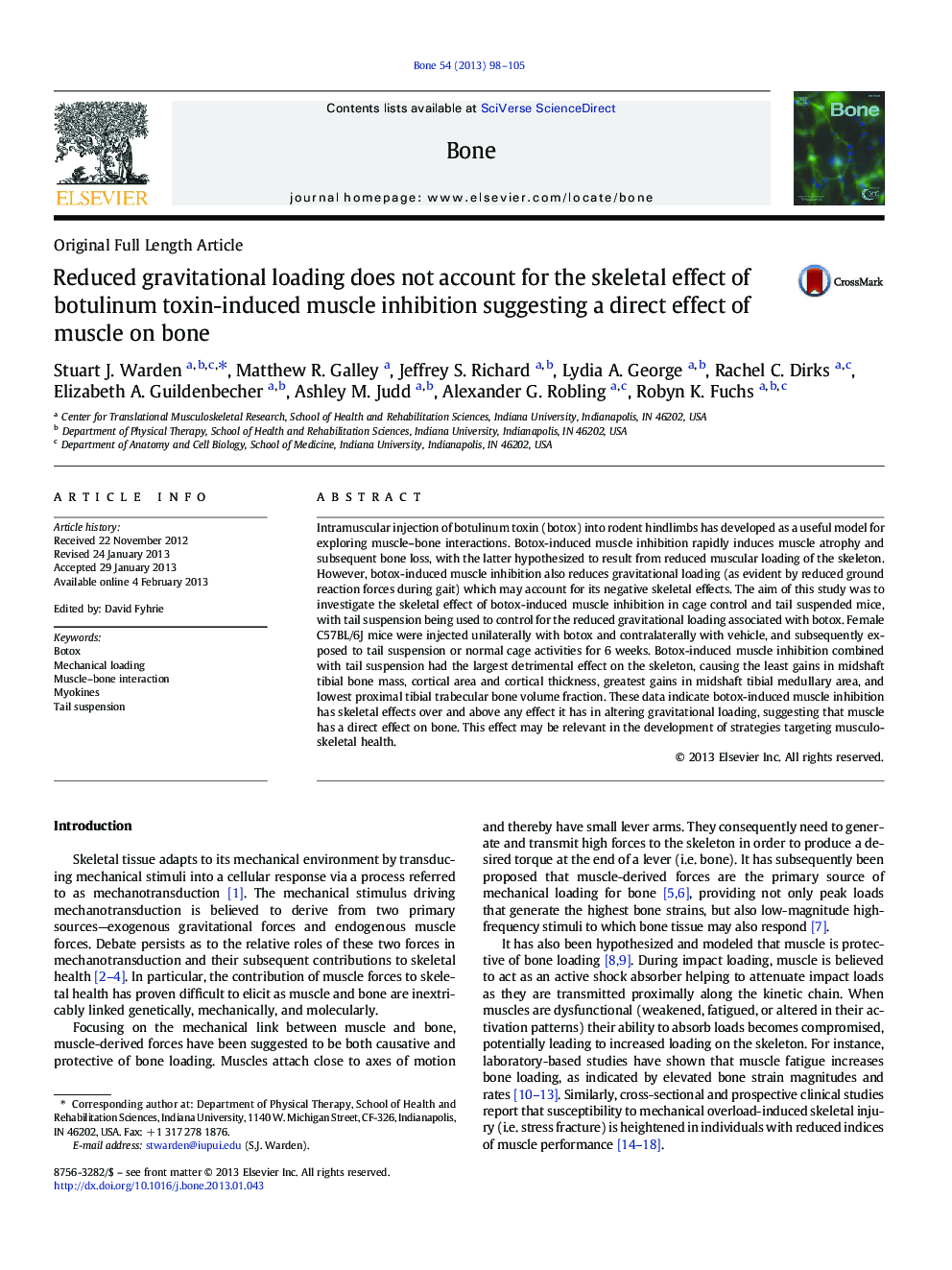| Article ID | Journal | Published Year | Pages | File Type |
|---|---|---|---|---|
| 5891080 | Bone | 2013 | 8 Pages |
Intramuscular injection of botulinum toxin (botox) into rodent hindlimbs has developed as a useful model for exploring muscle-bone interactions. Botox-induced muscle inhibition rapidly induces muscle atrophy and subsequent bone loss, with the latter hypothesized to result from reduced muscular loading of the skeleton. However, botox-induced muscle inhibition also reduces gravitational loading (as evident by reduced ground reaction forces during gait) which may account for its negative skeletal effects. The aim of this study was to investigate the skeletal effect of botox-induced muscle inhibition in cage control and tail suspended mice, with tail suspension being used to control for the reduced gravitational loading associated with botox. Female C57BL/6J mice were injected unilaterally with botox and contralaterally with vehicle, and subsequently exposed to tail suspension or normal cage activities for 6Â weeks. Botox-induced muscle inhibition combined with tail suspension had the largest detrimental effect on the skeleton, causing the least gains in midshaft tibial bone mass, cortical area and cortical thickness, greatest gains in midshaft tibial medullary area, and lowest proximal tibial trabecular bone volume fraction. These data indicate botox-induced muscle inhibition has skeletal effects over and above any effect it has in altering gravitational loading, suggesting that muscle has a direct effect on bone. This effect may be relevant in the development of strategies targeting musculoskeletal health.
⺠Isolated introduction of botox-induced muscle inhibition and tail suspension had the expected detrimental effects on the skeleton. ⺠Combined botox-induced muscle inhibition and tail suspension had a larger detrimental skeletal effect than with either intervention in isolation. ⺠These data indicate that reduced gravitational loading does not solely account for the skeletal effects of botox-induced muscle inhibition.
